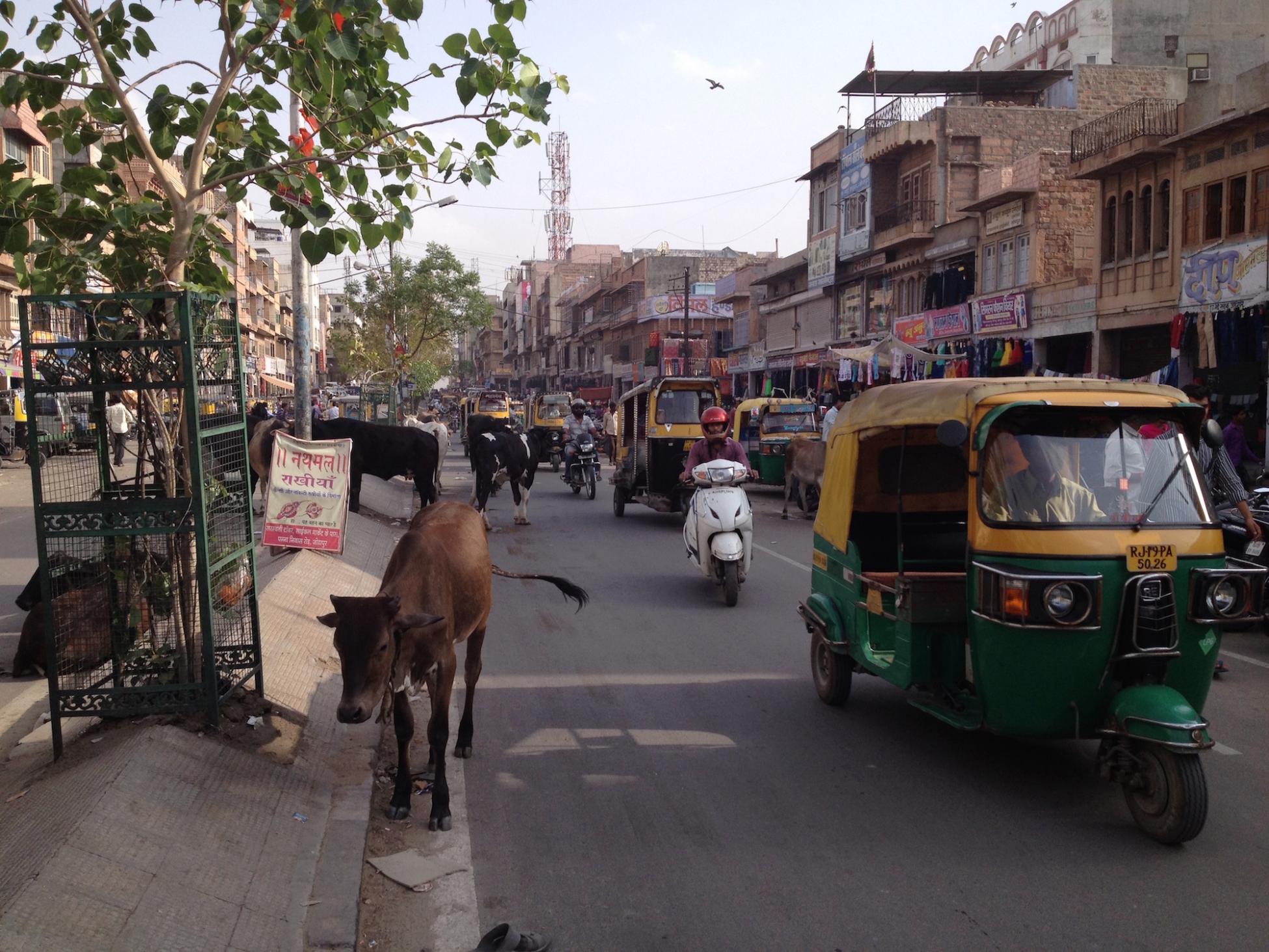Volunteering somewhere means that you spend more time than the average tourist getting to know a specific area and the region's culture. That's why after two months in Rajasthan, India, I feel like I can pass on some tips for living in this state; five, to be exact. The following list was approved and created with the help of a couple other volunteers, Katie and Isabell.
Here's the key skills any overseas volunteer will gain (and need) in India:
1. You will become familiar with the "head bobble."
India is known for what can best be described as the "head bobble." This is neither a shake of the head, nor a nod up-and-down. It is somewhere in between and best imitated by nodding sideways. Once you've noticed it, you will notice it everywhere.
Everyone does it, and it has a range of meanings. If it is a fast head bobble, then the answer is usually "yes." (I say usually, because it doesn't guarantee it.) If it is a slightly slower head bobble, the answer might be "no," or "maybe," or "I have no idea what you've just said to me." Get ready to pick up your own version of the head bobble, as most of us volunteers have managed to incorporate it in our daily on-goings, much to the confusion of many locals.
2. You will learn how to negotiate tuk tuks.
Tuk tuks in India are also known as rickshaws. They are basically little vehicles that run on scooter-power, where you can pile numerous people inside on one or two benches. The number of people that fit in a rickshaw can range from one person to an entire Indian family. Drivers seem to be a bit more hesitant with foreigners, but the maximum we've succeeded in piling in was seven at one time (yes, we are pretty skilled).
We have also become rather proficient at negotiating prices. Most drivers will try to charge the "tourist" price, which can be more than triple the local price. Here is what you do: first, you ask a local what the price should be. Then, when the driver quotes an insane price, you laugh, say the real price you want to pay, and walk away. This will usually result in a negotiation, and the more you walk away, the lower the price will be. The only risk is the driver driving away, but worry-not, there is always another rickshaw around the corner (or literally, surrounding you, as it often happens to foreigners).
3. You will gain experience dealing with the three "T"s of India: "Things Take Time."
Need to get somewhere at a specific time? Planned an hour for a group meal? Thought you could get a coffee in under five minutes? Needed numbers from an accountant by a certain date? Thought your class would start at the scheduled time? Well, I am sorry to say that in India, Things Take Time, and you'll need to learn to deal with it. It just is what it is, and you can't be getting worked up over it all the time. Some things just take a longer time and no one seems to be worried about it. Late for a meeting? You'll probably be the first one there. Four pm doesn't really mean 4:00 pm, and that is okay.
The trick is to plan extra time (like, a lot of extra time) if you have a specific deadline, or lower your expectations of things starting on time, therefore lowering your level of frustration when they don't. (Surprisingly, though, the buses leave the station precisely on time, much to our amazement when we missed the last bus by only five minutes. However, if you do catch the bus, you'll still somehow manage to show up to a party two hours late due to delays. You know, because Things Take Time.)
4. You will learn to never ask a polar question.
What is a polar question, you might ask? It is a question that can only be answered in "yes" or "no." Examples: "Is the temple further down this road?" "Is this water filtered?" "Does the bus leave from here directly?" "Is your hair on fire?" Answer: Yes/No. The problem? If someone has no idea what you are saying, they will answer "yes" or answer with a head bobble (see above).
At first, you trust these nice folk who agree with you because it implies the following: Yes, you are walking in the right direction, yes, this water is safe to drink, yes, you just have to wait here for the bus, yes, their hair is on fire. Wait, what? The last question of course, is to test and see if someone actually knows what you've said. How to avoid this? Well, ask about smoke coming from their hair, or, well, just never ask a polar or leading question.
5. You will learn how to "Indian match."
Back at home, if I walked into work dressed in a bright green and yellow top, with green leggings, a green scarf and a matching hairband, I would most definitely get stared at—and not because I would look ravishing (which I would), but because people would be snickering behind my back. It would just not go over well.
However, as luck might have it, if you aren't that level of matching in Rajasthan, then you're unstylish. Yes, you've read correctly—my dupatta (scarf) is an identical colour to my leggings, which both match my kurta (top)—and I fit in! At first, it was tough because we are so conditioned to not match this precisely, but once you've caved and bought the sets, it turns into the best thing ever. Bright colours all day long! Some of the locals think it is the funniest thing that we're all in kurtas, but they love it and we do too! We call it "Indian matching" and I promise that if you try it out, you'll fall in love with bright colours all over again. My next employee better get ready for some serious yellows, because I'm stockpiling them.
Add this article to your reading list




